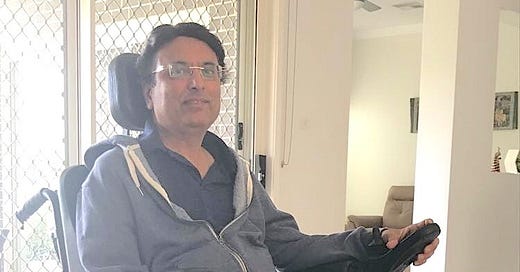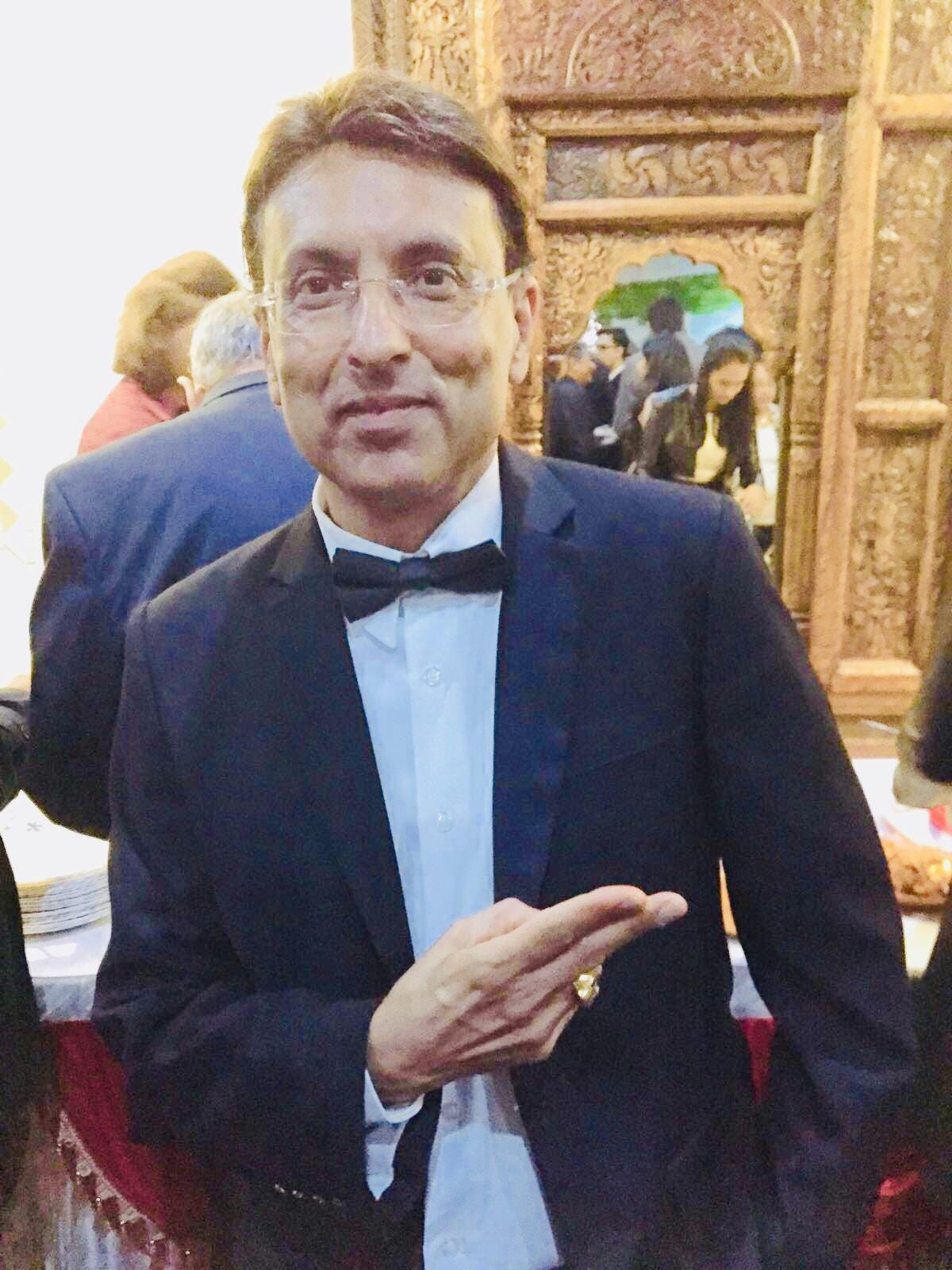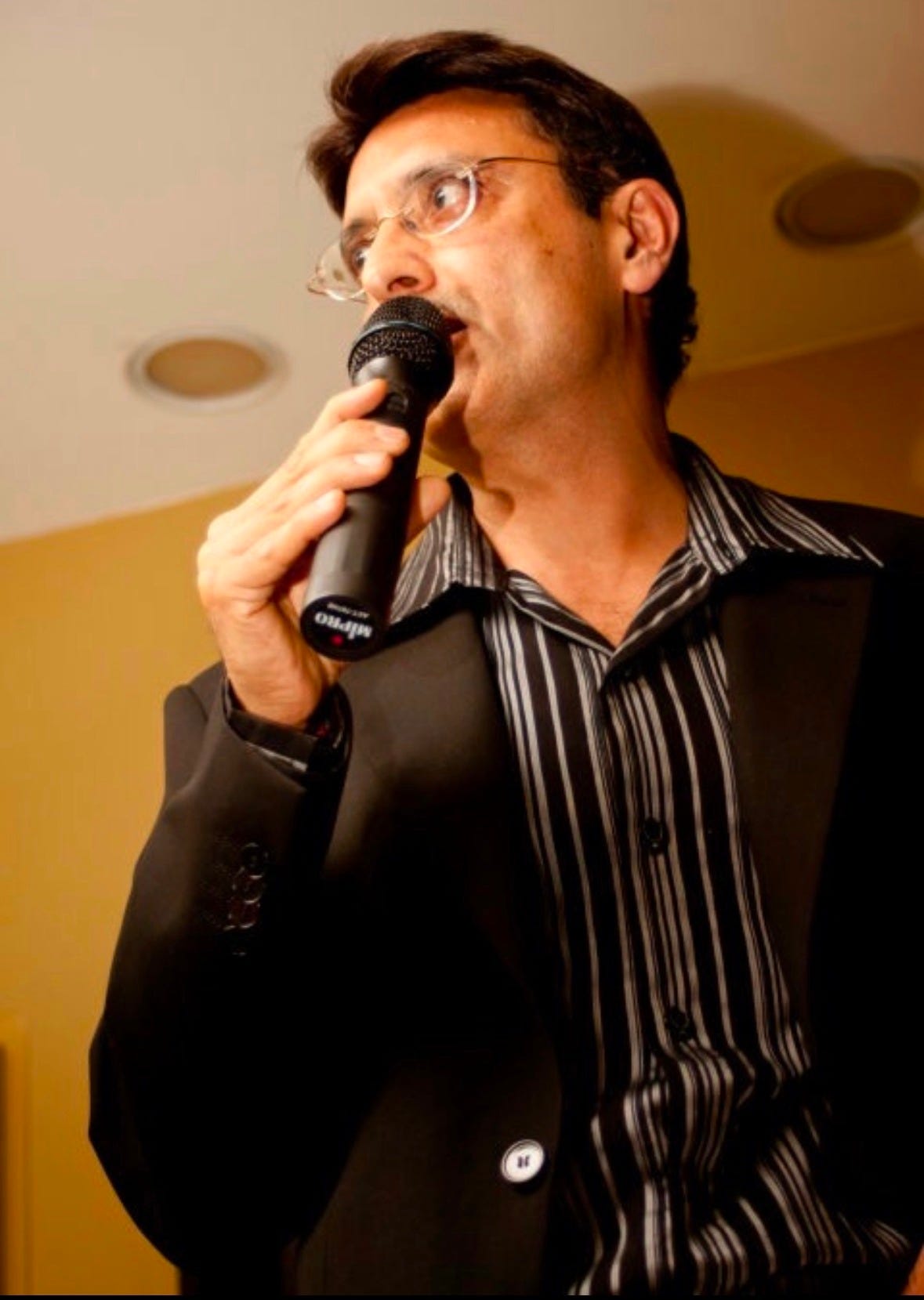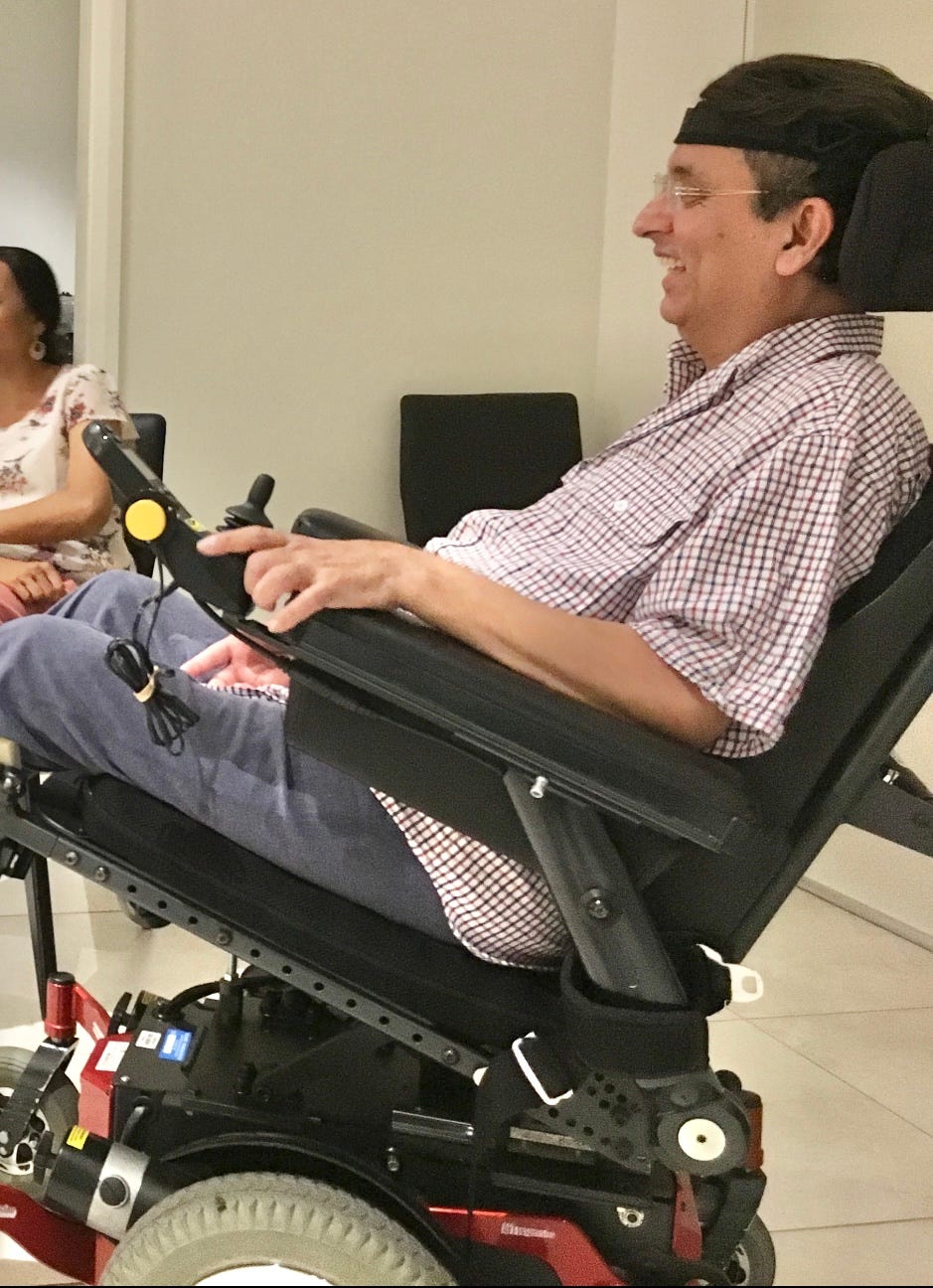#37 Watching my father disappear
Remembering him, and what this disease takes, this MND/ALS Awareness Day
Hi, I’m Ruhie! Writer, doctor, mum & grief advocate. If you’re new here, welcome to Grieve Fully, Live Fully — a space for honest, heartfelt reflections on grief, growth, and the messy, beautiful middle of being human.
This Saturday will be just another day for most people. But not for those of us whose lives have been upended by motor neurone disease — also known as MND, ALS, or Lou Gehrig’s disease. June 21 is Global MND/ALS Awareness Day: a day that matters deeply to people who know how devastating this illness is, and how often it’s overlooked.
As you read this piece, I invite you to reflect on something simple but profound:
Which function do you think would be hardest for you to lose — the ability to move your arms, walk, swallow, or speak?
It’s not easy to imagine. But for people living with MND/ALS, this isn’t hypothetical.
It’s reality.
It’s tempting to turn away from something that doesn’t impact you directly. It’s human nature. MND rarely makes headlines. And even when it does — through viral moments like the Ice Bucket Challenge — it quickly fades from public view. Unless it’s affected someone you love, chances are you’ve never really thought about it.
But the truth is, MND/ALS can affect anyone — regardless of age, gender, background, or lifestyle. It’s more common than most people realise, quietly striking without warning.
And once you’ve witnessed what it actually does — the cruelty, the helplessness, the relentless, unavoidable unravelling of someone you love — it stays with you. The wreckage remains, long after your person is gone.
I know this because of what it did to my dad. Bit by bit, it took him from us — until there was nothing left to take.
It started with his hands. Trouble turning the key in the door. Difficulty with buttons. Cramping in the small muscles of his palm. Subtle signs, easy to miss. Until one day: a dropped mug. Shattered glass. A confident man with a bruised ego, and the creeping sense that something was very, very wrong.
The giveaway? Muscle twitching — fasciculations. As a doctor, I realised what that meant. Weakness. Cramping. Twitching. Motor neurone disease or ALS.
A progressive, incurable neurological condition that destroys the nerves controlling movement. The body shuts down, while the mind stays fully aware.
At his first neurology appointment, we were told he likely had two to three years to live. There’s no cure. No effective treatment. No survivors. He was only fifty-six. And he’d just been given a death sentence.
Still, we hoped. He tried trial therapies. Enrolled in studies. Took vitamins, herbs, alternative medicines — nearly twenty pills a day at one point. He even travelled overseas for stem cell therapy.
But MND/ALS doesn’t stop. It doesn’t wait. It just takes.
Soon his arms were too weak to feed himself, so we spoon-fed him like a toddler. He needed help brushing his teeth, getting dressed, and shaving.
Then came the bruises.
“Dad… have you been falling over?”
A reluctant nod. The weakness had spread to his legs. He needed a walker to help him get around. He never complained, though. He did his exercises diligently every morning and night, even when his atrophying muscles must have screamed in protest. But within a few short months, he could no longer hold up his body weight. It was time for a wheelchair.
Not long after, we moved in together as a family of five. We knew he’d need more and more care going forward, and we wanted to make the most of whatever time we had left with him. I vividly recall him zipping around our new home in his new electric chair like a king on a throne, grinning as he manoeuvred up and down the ramp — gliding effortlessly between his bedroom and lounge with such ease and flair, as if he’d been doing it his whole life. Visitors to our home were met with jokes and stories, like nothing had changed. Like he wasn’t living every day knowing he was dying.
And still, the disease wasn’t done.
The muscles in his arms and legs kept wasting away until he could no longer move on his own. We had to use an electric hoist to lift him from bed to chair. I can still picture him — suspended mid-air, his once-strong body cradled by a netted sling. My father, who’d always been so capable and so independent, dangling like a puppet. That image has never left me.
It wasn’t just his limbs, though. He began coughing and gagging on food. Each swallow was a gamble — one wrong move, one tiny slip, and food or drink could go down the wrong pipe, setting off a chest infection that might prove deadly. We lived with that fragile balance every meal for months. We tried everything — smaller bites, thickened fluids that he said tasted like liquified ash. At one point, he and his five-month-old grandson were eating the same pureed consistency. But even that became too risky. Then came the feeding tube inserted into his stomach. If you looked closely at him, you’d see a small piece of clear tubing threaded through the buttons of his shirt — a silent mark of one more piece of normal robbed away.
But the worst part for him was losing his voice.
His speech — once loud and warm — faded into a faint whisper as the muscles around his vocal cords weakened. When you lose your voice, you lose your ability to connect with others, to advocate for yourself, to call out for help. Being left alone terrified him.
We knew time was running out when his lung function dropped so low that he needed a ventilator to keep him alive overnight. So, we packed in as much life as we could in the ever-compressing time he had left.
A family holiday on a Pacific Island cruise.
A grandchild born just in time.
A sixtieth birthday celebration filled with laughter, love, and Bollywood music of course.
Every night, we watched is favourites shows — Mr Bean or Fawlty Towers — because even in the thick of dying, he still wanted to laugh.
And through it all, his mind stayed razor sharp. That’s the cruelty of MND. It doesn’t cloud your memory or dull your senses. It just traps you inside your body. You become a prisoner — fully aware of everything but powerless to stop it.
You wouldn’t wish this on your worst enemy.
The pain of being locked inside yourself.
The grief of watching your own life slip away.
The helplessness of knowing there’s no escape except death.
This is what MND/ALS really looks like.
It steals from the person living it. And it takes from everyone who loves them — those who are forced to watch it unfold and carry those memories forever.
It turns partners into carers. Children into advocates. Parents into witnesses. It interrupts careers, fractures finances, wrecks sleep. It completely changes how you spend your time: coordinating care, tracking symptoms, watching their body deteriorate. Holding your breath when the machine beeps differently. You grieve them while they’re still alive — at every stage, with every fresh loss — and again when they’re gone.
There’s a reason the MND/ALS community calls this disease “the beast.” It’s a brutal, unforgiving thief.

So yes, this Saturday will bring the usual symbols of awareness: blue ribbons, a few social media posts, brief flickers of recognition.
But real awareness is more than just token gestures. It’s about understanding what this disease truly does — to bodies, spirits, families, and lives. It’s about recognising that MND/ALS isn’t rare. Thousands of people around the world receive this devastating diagnosis every year.
And behind every statistic is a real person.
And behind every real person is a story like ours.
When someone you love dies from MND/ALS, the world may move on — but our remembering never stops.
We remember so others don’t have to go through what you did.
We remember because they can’t speak anymore — so you speak for them.
We remember because it’s all you can do.
So this week, I’m remembering my dad — how he lived, and how he died. All that he lost, and all that he never stopped loving: family, laughter, sunshine, and dancing. The way we, and all those who loved and cared for him, kept showing up, even when he couldn’t ask.
And I’m remembering that love like that doesn’t die. It just changes form.
If you’ve lost someone to MND — or any cruel, relentless illness — I’m with you.
If you’re in the thick of it now, I see you.
And if you’ve never heard of MND before, that’s okay too.
Just take a moment to remember with me. Because this matters.
If you’re still here, thank you. I am truly grateful you took the time and care to read something so close to my heart.
I’d love to hear from you!
Which part of this story stayed with you most?
And if you feel comfortable sharing — which function do you think would be hardest for you to lose: the ability to move your arms, walk, swallow, or speak?
There’s no right or wrong answer. But it’s a powerful thing to reflect on — how much we rely on these abilities, and how deeply life changes when they’re taken away.
Thank you for being here and supporting my work. It means the world to me!
If you got value from this, here’s how we can stay connected:
1️⃣ Click the HEART button 💟 to like this post and leave me a COMMENT 💬 — it means we can connect on a deeper level and allows my writing to reach more people who need it
2️⃣ SUBSCRIBE for free to “Grieve Fully, Live Fully” — a supportive space to help you navigate loss, embrace life wholeheartedly, and find strength through life’s challenges
3️⃣ SHARE my newsletter with someone you think would appreciate it
4️⃣ And don’t forget to
🌈 Live Fully
💛 Love Deeply
😁 Laugh Often
⏳ Make the most of the time we are given













The ability to walk would be the hardest for me, I think. My brother was in a car accident at age 28, and suffered a severe traumatic brain injury that left him unable to walk or talk the rest of his life. I think not being able to walk or get around easily would be toughest for me. I can always write if I couldn't speak, but not being able to navigate easily by foot would be most difficult for me.
We lost our dear friend (my DIL’s Dad) to ALS. As I read along your journey it was familiar. I hate that it’s familiar to us.
I think the worst for me would be losing my voice.